Rent increases are a common part of property management, but landlords must approach them carefully to remain compliant with local and state laws. In Jupiter, FL, and the broader state of Florida, the laws governing rent increases provide flexibility to landlords but also establish certain guidelines to protect tenants. This section will explore the foundational aspects of legally increasing rent, ensuring both parties are treated fairly.
Overview of Florida Rent Increase Laws
Florida’s rent Increase laws are landlord-friendly but require adherence to specific rules. Here are the key principles:
No Rent Control Laws: Florida does not impose statewide rent control. This means landlords can increase rent without a statutory cap, provided they follow lease terms and other legal requirements.
Lease Agreements Govern Rent Adjustments: The terms outlined in a lease dictate when and how rent can be increased. For month-to-month tenants, changes require proper notice.
Fair Housing Laws Apply: Rent increases must comply with federal and state fair housing laws. Any increase based on discriminatory practices is strictly prohibited.
Types of Rental Agreements and Their Impact on Rent Increases
The type of rental agreement in place significantly influences how and when landlords can increase rent. The two main types are:
Fixed-Term Leases: These agreements lock in rental terms, including rent amounts, for a specified period (typically 12 months). Landlords cannot raise rent during this period unless the lease explicitly allows adjustments.
Month-to-Month Tenancies: With this more flexible arrangement, landlords can increase rent more frequently, provided they give proper notice (15 days in Florida, unless otherwise specified in the lease).
Notice Requirements for Rent Increases
Proper notification is essential to legally rent Increase. In Florida, landlords must provide written notice within specific timeframes:
Fixed-Term Lease: Rent increases are only permissible at the end of the lease term unless otherwise stated.
Month-to-Month Tenancies: A 15-day written notice is required before the end of the rental period.
Common Mistakes to Avoid
To ensure compliance and maintain positive tenant relationships, landlords should avoid the following errors:
Failing to Provide Adequate Notice: Increasing rent without proper notice can lead to legal disputes.
Making Verbal Agreements: Always document rent increases in writing.
Discriminatory Practices: Ensure that rent adjustments are based on market trends and property improvements, not tenant characteristics.
Importance of Market Research
Market research plays a crucial role in determining fair rent increases. Landlords should analyze local rental trends, average property rates, and the value-added features of their units. Understanding the market helps justify increases and prevents setting rates that are too high or too low.
Communication Best Practices
Clear communication is key when informing tenants about rent increases. Ensure that notices are concise and professional, outlining the reasons for the increase and the new rental amount. Providing this transparency can help build trust and reduce potential conflicts.
Role of Property Improvements in Rent Adjustments
Upgrades to rental properties often justify rent increases. Common improvements that can enhance value include:
Renovated kitchens or bathrooms
Energy-efficient appliances
Improved security features
Updated flooring or paint
Documenting these upgrades and presenting them as part of the rationale for the increase can help tenants see the value in the adjustment.
Legal Documentation for Rent Increases
Proper documentation is essential. This includes:
Notices sent to tenants
Updated lease agreements
Records of market research and property improvements
Maintaining accurate records ensures compliance with Florida’s laws and protects landlords in case of disputes.

Get a Free Rental Analysis
Want to know how much your home will rent for? We’ll send you a free rental report!
Ensuring Compliance with Legal Frameworks
When increasing rent, landlords in Jupiter, FL, must navigate a complex web of legal frameworks. Failing to adhere to these laws can result in penalties or strained tenant relationships. This section delves into specific legal requirements and provides actionable advice for landlords to ensure compliance.
Florida’s Legal Protections for Tenants
While Florida is known for its landlord-friendly environment, tenants are still protected under several statutes:
The Florida Residential Landlord and Tenant Act: This act outlines the rights and responsibilities of both landlords and tenants, emphasizing fair treatment.
Anti-Retaliation Laws: Landlords cannot increase rent as a retaliatory measure against tenants who exercise their legal rights, such as reporting safety violations or filing complaints.
Implied Warranty of Habitability: Landlords must ensure that rental units meet basic living standards. Failing to do so before increasing rent can lead to disputes.
Understanding Local Ordinances
In addition to state laws, landlords must also consider local ordinances in Jupiter. While the town may not impose rent control, other regulations could affect rent adjustments:
Zoning Laws: Ensure that the property’s zoning classification permits the intended rental activities.
Permit Requirements for Property Improvements: If rent increases are justified by property upgrades, ensure that all necessary permits were obtained during renovations.
Clear Documentation for Legal Clarity
Having the right documentation can protect landlords in case of disputes. Essential documents include:
Lease Agreements: These should outline all terms, including potential rent adjustments.
Notice of Rent Increase: Clearly state the new rent amount, the effective date, and the justification for the increase.
Maintenance and Upgrade Records: Document all property improvements that support the rent hike.
The Role of Mediation in Disputes
If a tenant challenges a rent increase, mediation can often resolve issues without escalating to court. Landlords should:
Provide evidence of the market research supporting the increase.
Highlight improvements made to the property.
Offer flexible solutions, such as phased increases, to maintain positive relationships.
Aligning Rent with Market Trends
To avoid disputes and ensure fairness, landlords should align rent adjustments with local market trends. Steps include:
Conducting Comparative Market Analysis (CMA): Evaluate similar properties in the area to determine an appropriate rent range.
Utilizing Online Rental Platforms: Tools like Zillow, Rentometer, or Apartments.com can provide insights into current market rates.
Consulting Real Estate Professionals: Local experts, such as property managers or realtors, can offer valuable advice on pricing strategies.
Practical Tips for Avoiding Legal Pitfalls
To ensure compliance and avoid legal issues, landlords should follow these best practices:
Provide Advance Notice: Always adhere to Florida’s notice requirements, even if tenants seem agreeable.
Avoid Discrimination: Rent increases must be based on objective factors, not on tenant characteristics or personal biases.
Be Transparent: Clearly communicate the reasons for the increase, emphasizing property improvements or market trends.
Addressing Common Challenges
Landlords often face resistance from tenants when increasing rent. Addressing these challenges proactively can help mitigate disputes:
Challenge: Tenants claim the increase is unfair.
Solution: Present market research and property improvement records to justify the adjustment.
Challenge: Tenants threaten to move out.
Solution: Offer incentives to stay, such as phased increases or enhanced amenities.
Challenge: Legal disputes arise.
Solution: Seek mediation before pursuing court action, and ensure all documentation is in order.
Utilizing Professional Services
Hiring professionals can simplify the rent adjustment process. Consider working with:
Property Management Companies: They can handle rent collection, tenant communication, and market analysis.
Real Estate Attorneys: Legal experts can review lease agreements and notices to ensure compliance.
Realtors and Market Analysts: These professionals provide valuable insights into local market conditions.
Preparing for Tenant Turnover
Rent increases can sometimes lead to tenant turnover. To minimize vacancies:
Invest in Marketing: Advertise the property effectively to attract new tenants.
Highlight Upgrades: Showcase property improvements in listings to justify higher rent.
Streamline the Leasing Process: Ensure that the application and approval process is efficient to fill vacancies quickly.

Strategies for Implementing a Rent Increase
Implementing a rent increase in Jupiter, FL, requires a structured approach that minimizes disruptions while ensuring compliance with legal requirements. In this section, we’ll explore practical strategies for executing a rent adjustment effectively.
Crafting a Notice of Rent Increase
A well-crafted notice of rent increase sets the tone for a smooth transition. The notice should include:
- Clear Subject Line: Use a direct heading like “Notice of Rent Increase for [Property Address].”
- Details of the Increase: State the current rent, the new rent, and the effective date of the increase.
- Rationale for the Adjustment: Briefly explain the reason for the increase, such as property improvements or market adjustments.
- Contact Information: Provide a way for tenants to reach out with questions or concerns.
Example:
Subject: Notice of Rent Increase for 123 Palm Avenue, Jupiter, FL
Dear [Tenant’s Name],
We are writing to inform you of a rent adjustment for your unit at [Property Address], effective [Effective Date]. The monthly rent will increase from $[Current Rent] to $[New Rent]. This adjustment aligns with current market trends and reflects the improvements made to the property, including [specific improvements]. Please contact us at [Contact Information] if you have any questions or require further clarification.
Sincerely,
[Your Name/Management Team]
Timing the Increase
Proper timing is crucial to ensure compliance and maintain a positive landlord-tenant relationship. Consider the following:
- Lease Renewal Periods: For fixed-term leases, initiate the discussion about rent adjustments at least 60 days before the lease ends.
- Seasonal Trends: Align increases with favorable rental market seasons (e.g., spring or summer) when tenant demand is typically higher.
- Economic Conditions: Be mindful of broader economic trends, such as inflation or local employment rates, which may affect tenants’ ability to absorb higher rents.
Communicating with Tenants
Effective communication can significantly ease the rent adjustment process. Follow these guidelines:
- Be Transparent: Share data about local market rates or property improvements to justify the increase.
- Use Multiple Channels: Send notices through certified mail, email, and hand-delivered copies to ensure tenants receive the information.
- Hold Meetings or Open Discussions: Offer tenants the opportunity to voice concerns and ask questions. This shows that you value their feedback.
Incentives to Ease the Transition
To encourage tenant retention despite a rent increase, consider offering incentives:
- Phased Increases: Gradually raise the rent over several months to make the adjustment more manageable.
- Enhanced Amenities: Include new services, such as free parking or upgraded appliances, to add value to the increase.
- Flexible Payment Plans: Offer alternative payment schedules, such as biweekly payments, for tenants facing financial constraints.
Dealing with Tenant Resistance
When tenants resist a rent increase, having a plan in place is essential:
- Listen to Concerns: Address their grievances respectfully and provide clear justifications for the adjustment.
- Highlight Market Comparisons: Share data on similar properties in the area to emphasize the fairness of the new rate.
- Offer Negotiable Terms: If possible, negotiate a slightly lower increase in exchange for a longer lease commitment.
Steps to Prevent Vacancies
Rent increases can sometimes lead to tenant turnover. To minimize vacancies:
- Build Tenant Loyalty: Show appreciation for long-term tenants through discounts or gifts.
- Enhance Marketing Efforts: Use high-quality photos and detailed property descriptions to attract new renters.
- Shorten Vacancy Periods: Prepare the property for new tenants promptly and offer incentives for quick move-ins.
Streamlining the Rent Increase Process
To implement rent increases efficiently, utilize available tools and services:
- Property Management Software: Platforms like Buildium or AppFolio can automate rent collection and notices.
- Professional Assistance: Engage property managers or real estate agents to handle tenant relations and market analysis.
- Document Templates: Use standardized templates for notices and lease agreements to ensure legal compliance.

Maintaining Long-Term Tenant Relationships During Rent Adjustments
Successfully increasing rent while maintaining strong tenant relationships is a fine balance. In Part 4 of this guide, we explore strategies for creating a win-win scenario, minimizing tenant turnover, and building trust throughout the process.
Proactive Communication to Build Trust
Transparent and proactive communication is essential to reduce misunderstandings and frustration about rent increases.
Tips for Effective Communication:
- Notify Tenants Early: While Florida law requires specific notice periods, providing longer notice shows consideration.
- Explain the Reasoning: Share the rationale behind the increase, such as market trends or property upgrades.
- Be Open to Questions: Invite tenants to express concerns and address them professionally.
Offering Incentives to Retain Tenants
Providing incentives can make rent adjustments more palatable to tenants and encourage them to stay.
Common Incentives Include:
- Upgraded Amenities: Consider adding small but impactful improvements, such as new appliances or enhanced landscaping.
- Flexible Payment Terms: Offer options like phased rent increases or a one-time discount for early lease renewals.
- Extended Lease Agreements: A longer lease with stable rates can appeal to tenants seeking security.
Creating a Tenant Retention Strategy
A long-term tenant retention strategy can reduce turnover, minimizing the costs associated with vacancy and tenant acquisition.
Retention Strategies:
- Regular Maintenance: Proactively address maintenance issues to ensure tenants are satisfied with their living conditions.
- Tenant Appreciation Programs: Small gestures, such as holiday cards or occasional discounts, can build goodwill.
- Personalized Outreach: Recognize and accommodate tenants’ needs, showing that their comfort is a priority.
Handling Tenant Resistance
Despite best efforts, some tenants may resist rent increases. Preparing for these situations can help resolve conflicts amicably.
Steps to Manage Resistance:
- Listen Actively: Understand the tenant’s perspective before responding.
- Offer Negotiations: For valued tenants, consider negotiating a smaller increase or providing additional amenities.
- Provide Evidence: Share documentation of market research or property improvements to justify the adjustment.
Building a Strong Landlord-Tenant Relationship
Fostering a strong relationship with tenants goes beyond financial considerations. When tenants feel valued, they are more likely to accept changes, including rent adjustments.
Best Practices for Building Relationships:
- Be Accessible: Ensure tenants can easily reach you or your property management team.
- Respond Promptly: Address inquiries or concerns quickly and professionally.
- Show Empathy: Recognize that a rent increase can impact tenants and approach discussions with understanding.
Investing in Community Engagement
A sense of community can enhance tenant satisfaction and loyalty. Create an environment where tenants feel connected to their neighbors and surroundings.
Ways to Encourage Community Engagement:
- Host Tenant Events: Organize gatherings like BBQs or seasonal parties.
- Create Shared Spaces: Enhance common areas, such as gardens or lounges, to promote interaction.
- Support Local Initiatives: Partner with local businesses or sponsor neighborhood events to build goodwill.
Leveraging Technology for Tenant Satisfaction
Technology can streamline processes and improve tenant experiences, making them more likely to accept rent increases.
Technology Solutions:
- Online Portals: Offer platforms for rent payments, maintenance requests, and communication.
- Automated Notifications: Send reminders for rent changes or upcoming events.
- Virtual Tours: Use virtual tours to showcase property improvements that justify rent adjustments.
Monitoring and Adjusting Your Approach
Not every rent increase strategy will work perfectly, so it’s essential to monitor tenant responses and adapt as needed.
Evaluation Methods:
- Conduct Tenant Surveys: Gather feedback on your communication and policies.
- Track Retention Rates: Monitor how many tenants renew leases after rent adjustments.
- Analyze Complaints: Use complaints as opportunities to improve processes and relationships.
By prioritizing clear communication, tenant retention, and a thoughtful approach to rent adjustments, landlords in Jupiter, FL, can build sustainable relationships with tenants while ensuring the profitability of their properties.
Suggested Helpful links:
Maximizing Rental Income Through Strategic Property Improvements
How to Ensure Legal Compliance in Property Management in Palm Beach County
The Comprehensive Guide to Legal Compliance in Palm Beach County Property Management



